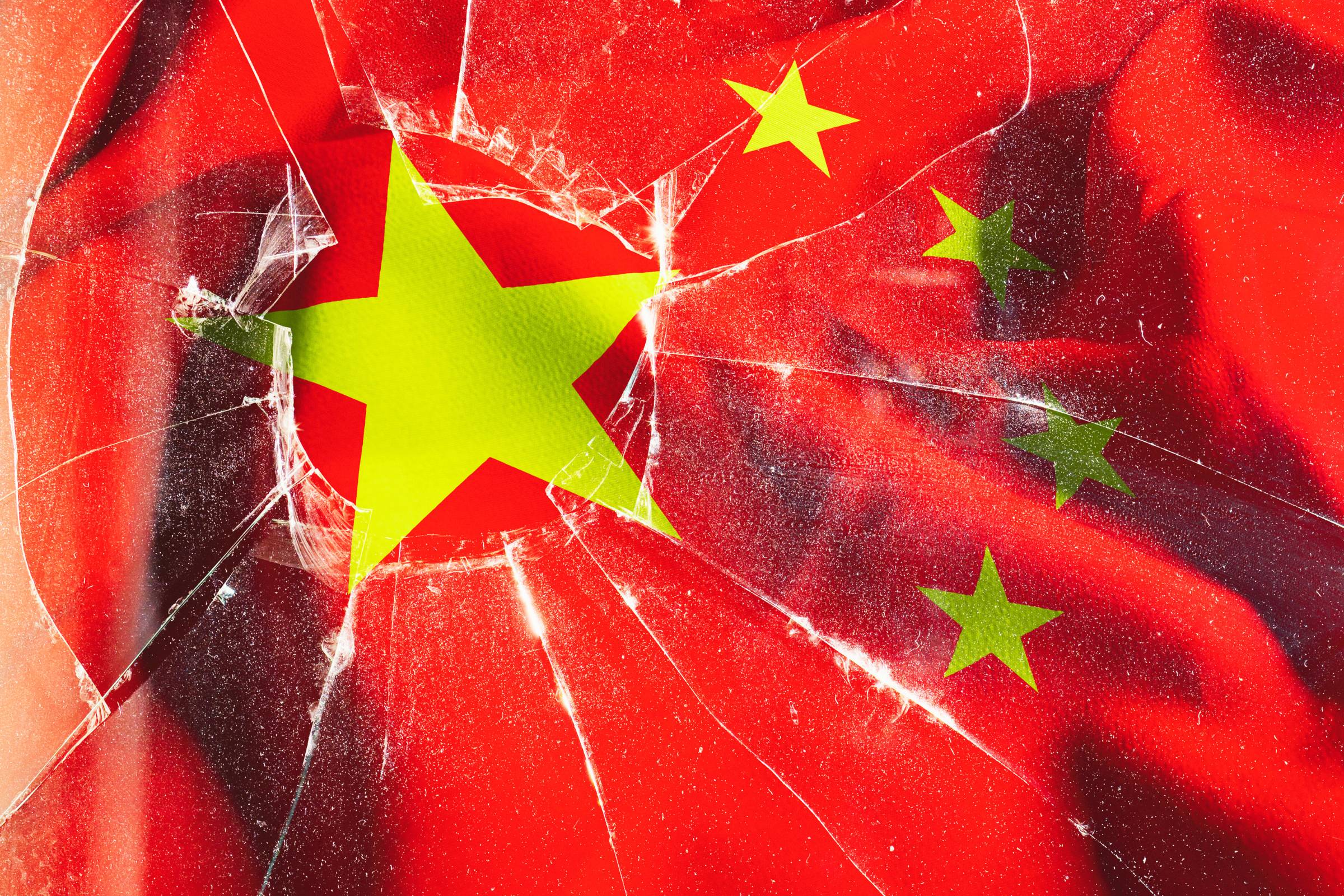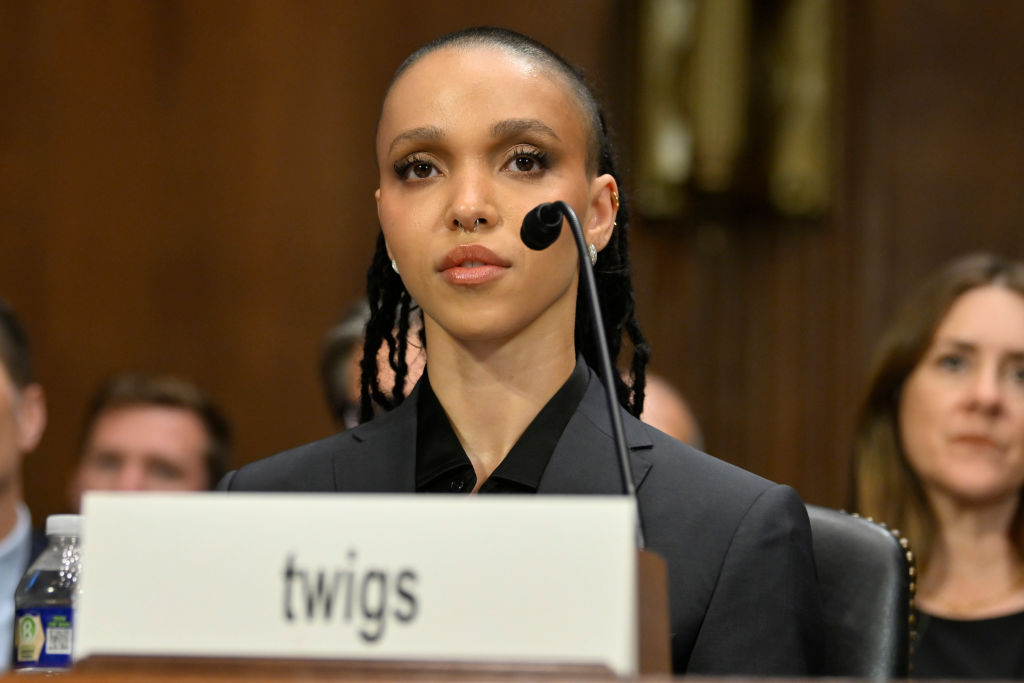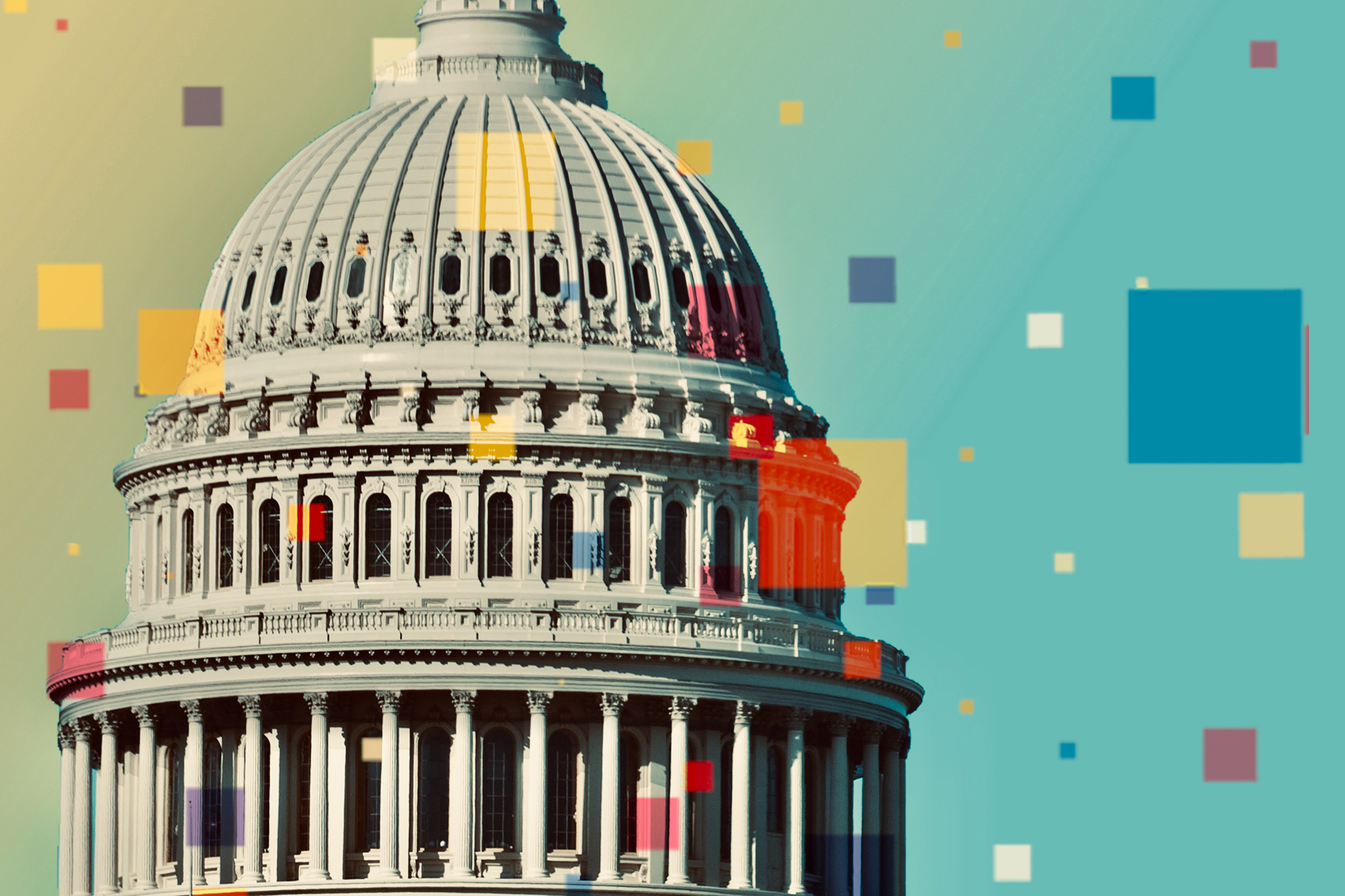
(DALLAS) — A thick atmosphere has been detected around a planet that’s twice as big as Earth in a nearby solar system, researchers reported Wednesday.
The so-called super Earth — known as 55 Cancri e — is among the few rocky planets outside our solar system with a significant atmosphere, wrapped a blanket of carbon dioxide and carbon monoxide. The exact amounts are unclear. Earth’s atmosphere is a blend of nitrogen, oxygen, argon and other gases.
[time-brightcove not-tgx=”true”]“It’s probably the firmest evidence yet that this planet has an atmosphere,” said Ian Crossfield, an astronomer at the University of Kansas who studies exoplanets and was not involved with the research.
The research was published in the journal Nature.
Super Earth refers to a planet’s size — bigger than Earth but smaller than Neptune. The boiling temperatures on this planet — which can reach as hot as 4,200 degrees Fahrenheit (2,300 degrees Celsius) – mean that it is unlikely to host life.
Instead, scientists say the discovery is a promising sign that other such rocky planets with thick atmospheres could exist that may be more hospitable.
The exoplanet 41 light years away is eight times heavier than Earth and circles its star Copernicus so closely that it has permanent day and night sides. A light-year is nearly 6 trillion miles (9.7 trillion kilometers). Its surface is encrusted with magma oceans.
To identify the makeup of its atmosphere, researchers studied Webb Space Telescope observations before and after the planet passed behind its star.
They separated the light emitted from the planet versus its star and used the data to calculate the planet’s temperature. There’s evidence the planet’s heat was being distributed more evenly across its surface – a party trick atmospheres are known for.
Gases from its magma oceans may play a key role in holding its atmosphere steady. Exploring this super Earth may also yield clues to how Earth and Mars might have evolved first with magma oceans that have since cooled, scientists say.
“It’s a rare window,” said Renyu Hu, a planetary scientist at NASA’s Jet Propulsion Laboratory, who was part of the research. “We can look into this early phase of planet evolution.”
Source: Tech – TIME | 8 May 2024 | 4:21 pm

Researchers at Google DeepMind have developed AlphaFold 3, an AI model that can predict the structure of and interactions between biological molecules including proteins, DNA and RNA, and small molecules that could function as drugs. Google DeepMind will make the model available for non-commercial use through AlphaFold server. The landmark innovation, the details of which were published in the journal Nature on May 8, is likely to dramatically accelerate biological research.
“It’s a big milestone for us today, announcing AlphaFold 3,” said Demis Hassabis, CEO of Google DeepMind, at a briefing on May 7 announcing the breakthrough. “Biology is a dynamic system and you have to understand how properties of biology emerge through the interactions between different molecules in the cell. You can think of AlphaFold 3 as our first big step towards that.”
[time-brightcove not-tgx=”true”]The AI system is a descendant of previous AlphaFold models built by Google DeepMind that essentially solved the problem of predicting the three-dimensional structure of a protein from its amino acid structure. Google DeepMind’s first AlphaFold model, announced in 2018, attempted to predict protein structures, coming first in an international protein structure prediction competition. AlphaFold 2, released in 2020, significantly improved on the first’s protein structure accuracy predictions.
AlphaFold 3 goes further by predicting the structures of almost all biological molecules and modeling the interactions between those molecules. While researchers have long developed specialized computational methods for modeling interactions between specific types of biological molecules, AlphaFold 3 marks the first time that a single system has been able to predict the interactions between nearly all molecular types with state-of-the-art performance.
More From TIME
The properties and functions of molecules in biological systems are typically a result of how they interact with other molecules. Using experiments to understand molecular interactions can take years of research time and be prohibitively expensive. If these interactions can instead be estimated computationally with sufficient accuracy, then biological research can be dramatically accelerated. For example, if researchers believe that a molecule that binds to a specific site on a certain protein would be a promising drug candidate, they can use computational systems such as AlphaFold 3 to test potential drug molecules.
“AlphaFold continues to get better, and increasingly more relevant for biological investigations,” said Paul Nurse, the Nobel Prize-winning geneticist and chief executive and director of the London-based biomedical research center the Francis Crick Institute, in a statement accompanying the Google DeepMind announcement. “This third version will enable increased accuracy in predicting the structures of complexes between different macromolecules, as well as associations between macromolecules, small molecules and ions.”
Google DeepMind was founded as DeepMind in 2010 by Hassabis, along with Google DeepMind Chief AGI Scientist Shane Legg and Mustafa Suleyman. (Suleyman is now CEO at Microsoft AI, Microsoft’s consumer AI products and research organization.) DeepMindwas acquired by Google in 2014, and in 2023 Google merged DeepMind with Google Brain, another Google AI division, to form Google DeepMind, putting an end to efforts by DeepMind’s leadership to secure greater autonomy from their parent company.
In addition to the AlphaFold family of AI systems, Google DeepMind has made several breakthroughs that use AI to further science and technology. In 2022 the company released an AI system that can discover novel algorithms, and in 2023 it released an AI model that could forecast the weather with unprecedented accuracy. Also in 2023, Google DeepMind released an AI model that it claims accurately predicts the structures of materials, although the utility of this model has since been called into question by independent researchers.
In 2021, Google parent company Alphabet announced the creation of Isomorphic Labs, which aims to take an AI-first approach to drug discovery. Researchers from Isomorphic Labs contributed to the development of AlphaFold 3 and, while AlphaFold Server can be used by anyone from non-commercial research, researchers at Isomorphic Labs will have exclusive access to AlphaFold 3 for commercial use.
“We’ve been using AlphaFold 3’s capabilities day-to-day in our drug design programmes,” said Max Jaderberg, chief AI officer at Isomorphic labs, at the announcement briefing. “We’re already seeing that potential to accelerate, improve, and ultimately transform the way that we do drug discovery, and it’s really because of the new level of accuracy of this model, and the increased breadth of biomolecules that this model is able to predict, that really enables that for us.”
Source: Tech – TIME | 8 May 2024 | 11:00 am

TikTok and its Chinese parent company ByteDance are suing the U.S. over a law that would ban the popular video-sharing app unless it’s sold to another company.
The lawsuit filed on Tuesday may be setting up what could be a protracted legal fight over TikTok’s future in the United States.
The popular social video company alleged the law, which President Joe Biden signed as part of a larger $95 billion foreign aid package, is so “obviously unconstitutional” that the sponsors of The Protecting Americans From Foreign Adversary Controlled Applications Act are trying to portray the law not as a ban, but as a regulation of TikTok’s ownership.
[time-brightcove not-tgx=”true”]“Congress has taken the unprecedented step of expressly singling out and banning TikTok: a vibrant online forum for protected speech and expression used by 170 million Americans to create, share, and view videos over the Internet,” ByteDance said in its suit. “For the first time in history, Congress has enacted a law that subjects a single, named speech platform to a permanent, nationwide ban, and bars every American from participating in a unique online community with more than 1 billion people worldwide.”
The law requires TikTok’s parent, ByteDance, to sell the platform within nine months. If a sale is already in progress, the company will get another three months to complete the deal. ByteDance has said it “doesn’t have any plan to sell TikTok.” But even it wanted to divest, the company would have to get a blessing from Beijing, which previously opposed a forced sale of the platform and has signaled its opposition this time around.
Read More: As a Potential TikTok Ban Looms, Creators Worry About More Than Just Their Bottom Lines
TikTok and ByteDance argued in the lawsuit that it really isn’t being given a choice.
“The ‘qualified divestiture’ demanded by the Act to allow TikTok to continue operating in the United States is simply not possible: not commercially, not technologically, not legally,” they said.
Under the act, TikTok will be forced to shut down by Jan. 19, 2025, according to the lawsuit.
The parties argued that they should be protected by the First Amendment’s guarantee of freedom of expression. They are seeking a declaratory judgment that the Act violates the U.S. Constitution; an order enjoining Attorney General Merrick Garland from enforcing the Act and any further relief that the court may deem appropriate.
The fight over TikTok takes place as U.S.-China relations have shifted to that of intense strategic rivalry, especially in areas such as advanced technologies and data security, seen as essential to each country’s economic prowess and national security.
U.S. lawmakers from both parties, as well as administration and law enforcement officials, have expressed concerns that Chinese authorities could force ByteDance to hand over U.S. user data or sway public opinion by manipulating the algorithm that populates users’ feeds. Some have also pointed to a Rutgers University study that maintains TikTok content was being amplified or underrepresented based on how it aligns with the interests of the Chinese government, which the company disputes.
Opponents of the law argue that Chinese authorities – or any nefarious parties – could easily get information on Americans in other ways, including through commercial data brokers that rent or sell personal information. They note the U.S. government hasn’t provided public evidence that shows TikTok sharing U.S. user information with Chinese authorities, or tinkering with its algorithm for China’s benefit. They also say attempts to ban the app could violate free speech rights in the U.S.
Jameel Jaffer, executive director of the Knight First Amendment Institute at Columbia University, expects TikTok’s challenge to the ban to succeed.
“The First Amendment means the government can’t restrict Americans’ access to ideas, information, or media from abroad without a very good reason for it—and no such reason exists here,” Jaffer said in a printed statement.
__________________________
AP Business Writer Michelle Chapman contributed to this story from New York.
Source: Tech – TIME | 7 May 2024 | 1:19 pm

Even by its own standards, the tech sector has had an extraordinary year. The surges in valuation of firms such as Nvidia, Meta, and Amazon have elevated the tech sector’s share within the S&P 500 to an unprecedented 30%. Amid this boom, it’s almost too easy to overlook the challenges faced by tech giants elsewhere, particularly in China.
Leading Chinese tech firms, notably Alibaba and Tencent, have seen their market capitalization plummet up to 75% from their peaks three years ago. A key factor was the sweeping regulatory crackdown initiated by the Chinese government in late 2020, which lasted for an unprecedented 18 months. It wasn’t until a massive sell-off of Chinese stocks in March 2022 which prompted policymakers to reverse course and ease regulations.
[time-brightcove not-tgx=”true”]During this tumultuous period, Chinese authorities rapidly introduced a series of stringent antitrust, data, and labor regulation, while imposing astronomical fines on companies like Alibaba and Meituan for engaging in monopolistic practices. Simultaneously, Big Tech firms like Tencent, Alibaba, and Ant Group were forced to exit from non-core businesses or undergo significant restructuring to reduce their influence in the tech sector.
Chinese authorities asserted that these hectic actions were aimed to rectify the myriad of regulatory problems caused by years of unchecked growth and disorderly competition among local tech giants. Yet these hectic enforcement actions have also sowed confusion and sparked fears about the capriciousness of China’s regulatory policies.
From 2021 to 2022, the total investment capital in Chinese internet industry plummeted by an astonishing 80%, from $49 billion to a mere $10 billion. Simultaneously, the total market capitalization of Chinese internet companies shrank from $2.5 trillion at its 2020 peak to $1.4 trillion in 2022. As investors retreated from Chinese consumer tech businesses, new market entries into the sector have dwindled.
The crackdown has disproportionately burdened smaller firms, which lack the extensive in-house resources that large firms have at their disposal for handling the costs associated with heightened regulatory compliance. That has inadvertently given larger tech firms a competitive edge, further cementing their dominance in the market.
Even foreign tech firms—ostensibly not the targets of the crackdown—have felt the pains. In 2021, both LinkedIn and Yahoo announced their withdrawal from China, attributing their decisions to escalating compliance costs and an increasingly challenging operating environment.
A major consequence of retreating private investors has been an opening for the state. In the past few years, state-owned entities have aggressively invested in “golden shares” in certain subsidiaries of Chinese social media companies such as ByteDance (the parent company of TikTok), Alibaba, and Tencent. These shares, typically amounting to a nominal 1-2% stake, grant the government power to appoint a representative to the board of directors and exert veto rights over important corporate decisions. Although this scheme has only affected those social media companies, it has made investors vigilant about the Chinese government’s control over its tech firms.
This enhanced state control also raises further suspicion among foreign policymakers toward social media apps owned by Chinese Big Tech. The recent U.S. bill forcing TikTok to divest from its Chinese parent company, ByteDance, or face a national ban exemplifies such a trend.
While the crackdown has eased since early 2022, it has clearly left an indelible mark on Chinese tech regulation and eroded trust in state-business relations. Investors, having endured unexpected and severe crackdowns, are now highly sensitive to even small regulatory changes. A vivid illustration of this occurred last December when China’s gaming regulator announced draft rules to curb excessive gaming. The announcement caused panic among investors, wiping out $80 billion of market value from leading Chinese gaming companies. In a dramatic turn of events, the gaming regulator scrapped the proposed regulation and dismissed the official responsible for it.
Today, the tech sector is still characterized by stricter laws and more powerful regulatory agencies than before the crackdown. And when the next crisis calls for strong state intervention, there is now an even greater likelihood of regulatory overreach. Without strong institutional oversight, there is a risk of over-enforcement and administrative abuse. Worse yet, the crackdown has led to institutional changes that are likely to create more cycles of volatility in the years to come.
The ramifications of all of this extend well beyond economic and financial consequences. The country has been counting on its tech firms to help achieve technological self-sufficiency to catch up with the U.S. But the crackdown has crippled its most competitive tech giants, pushing its goal of achieving technological supremacy even further out of reach.
Source: Tech – TIME | 7 May 2024 | 6:30 am

Jack Dorsey has left the board of social networking service Bluesky, which he helped fund and popularize a year ago in the wake of regret over the sale of Twitter to Elon Musk.
[time-brightcove not-tgx=”true”]The Twitter co-founder took to the Musk-owned platform, now rebranded X, to tout his new philanthropic grants to open internet protocols, which he described as “freedom technology.” He also added X to that class of tech, elaborating only to say that corporations can build upon open protocols too.
Dorsey whittled down the list of people he follows on X to just three: Musk, Edward Snowden and Stella Assange, wife of the imprisoned WikiLeaks publisher. It suggested an apparent warming of relations between X’s owner and Dorsey, who had posted on Bluesky a year ago that “it all went south” after Musk’s takeover and radical transformation of Twitter.
don’t depend on corporations to grant you rights.
— jack (@jack) May 4, 2024
defend them yourself using freedom technology.(you’re on one)
Bluesky is a network and protocol launched to pursue Dorsey’s platonic ideal for Twitter as a service without central control, and it opened to all interested users in February. The social service made a splash in its early days as a way to escape the upheaval at Twitter after Musk’s acquisition, though it has since been overshadowed by the launch of Meta Platforms Inc.’s Threads as the most viable alternative. Dorsey responded to a question on X as to whether he was still on the Bluesky board with a “no.”
Source: Tech – TIME | 6 May 2024 | 3:00 am

Russian state-affiliated accounts have boosted their use of TikTok and are getting more engagement on the short-form video platform ahead of the U.S. presidential election, according to a study published Thursday by the nonprofit Brookings Institution.
The report states that Russia is increasingly leveraging TikTok to disseminate Kremlin messages in both English and Spanish, with state-linked accounts posting far more frequently on the platform than they did two years ago.
[time-brightcove not-tgx=”true”]Such accounts are also active on other social media platforms and have a larger presence on Telegram and X than on TikTok. However, the report says user engagement — such as likes, views and shares — on their posts has been much higher on TikTok than on either Telegram or X.
“The use of TikTok highlights a growing, but still not fully realized, avenue for Russia’s state-backed information apparatus to reach new, young audiences,” reads the report, which drew data from 70 different state-affiliated accounts and was authored by Valerie Wirtschafter, a Brookings fellow in foreign policy and its artificial intelligence initiative.
The study notes that most posts do not focus on U.S. politics but other issues, like the war in Ukraine and NATO. However, those that do tend to feature more divisive topics like U.S. policy on Israel and Russia, and questions around President Joe Biden’s age, the Brookings report says.
A TikTok spokesperson said the company has removed covert influence operations in the past and eliminated accounts, including 13 networks operating from Russia.
The spokesperson said TikTok also labels state-controlled media accounts and will expand that policy in the coming weeks “to further address accounts that attempt to reach communities outside their home country on current global events and affairs.”
The Brookings report comes after Biden last month signed legislation forcing TikTok’s parent company — China-based ByteDance — to sell the platform or face a ban in the U.S. The potential ban is expected to face legal challenges.
Source: Tech – TIME | 2 May 2024 | 6:32 pm

Across social media, iPhone users have reported waking up to the scary realization that they had missed their alarm. “In the past six days of school, I’ve accumulated seven tardies,” said TikTok user CarterPCS. “I could’ve sworn it was because my alarm wasn’t going off.”
“I was literally late to work the other day because I slept through all four of my alarms that I had set,” TikTok user Charkaylotte recounted. “I was confused because I never sleep through my alarm.”
[time-brightcove not-tgx=”true”]In a news report posted on Tuesday, Apple told the Today Show that it was in fact aware of a glitch that is causing alarms to not make noise for many users. The company says that it is working on a fix, but it’s not clear when exactly that will be ready.
@charkaylotte #stitch with @Elizabeth now wtf is this shit apple? 🤨 | #xyzbca #fyp #apple #greenscreen
♬ original sound – charlotte 💋
@carterpcs Iphone Alarms ARENT GOING OFF #carterpcs #tech #techtok #gaming #techfacts #alarm #iphone #apple #ios
♬ Funny – Gold-Tiger
TIME has reached out to Apple for further information.
In the meantime, some social media users, including TikTok’s CarterPCS, have recommended changing settings to help fix the issue. Specifically, they have noted that Apple’s “Attention-Aware Features,” which make your phone automatically brighten its screen and lower the volume while you are looking at it, may be causing the problem.
To turn off the “Attention-Aware Features,” go to “Settings” and then select “Face ID & Passcode.” You will be prompted to enter your passcode, after which you should be able to scroll down and see the option to toggle the features on or off. Turn them off to see if it helps fix your alarm clock issues.
Source: Tech – TIME | 2 May 2024 | 9:51 am

British singer-songwriter FKA twigs, born Tahliah Debrett Barnett, testified before the U.S. Senate Judiciary Subcommittee on Intellectual Property on Tuesday about the dangers of artificial intelligence. She relayed that she was especially concerned as an artist whose music and performances are used by third parties to train artificial intelligence models. She said that the power of this technology has become especially apparent to her as she has attempted to build a deepfake version of herself.
[time-brightcove not-tgx=”true”]“In the past year, I have developed my own deepfake version of myself that is not only trained in my personality, but also can use my exact tone of voice to speak many languages,” the singer said in her statement. “I will be engaging my ‘AI twigs’ later this year to extend my reach and handle my online social media interactions, whilst I continue to focus on my art from the comfort and solace of my studio.”
FKA twigs stressed that in certain cases, deepfake technology can be useful and practical, so long as it is used with the consent of the person it is imitating. “These and similar emerging technologies are highly valuable tools both artistically and commercially when under the control of the artist. What is not acceptable is when my art and my identity can simply be taken by a third party and exploited falsely for their own gain without my consent due to the absence of appropriate legislative control,” she argued.
The musician especially encouraged those in power to enact legislation to control deepfake technology, and warned them not to repeat the mistakes made when the internet was first invented. “Three decades ago, we did not realize that the internet would embed itself so deeply into the core of our everyday lives. Policies and controls to keep pace with the emergence of the technology were not put in place to protect artists, young people, those who are vulnerable,” she said.
FKA twigs is not the only person to voice concern about the use of personal intellectual property by generative AI companies. On Tuesday, a group of eight American newspapers announced that they would be suing Microsoft and Open AI, the maker of ChatGPT, for using their work as training data without consent.
The U.S. still does not have any federal laws criminalizing the use of deepfake technology without the permission of the person being impersonated. This has been particularly harmful for people in abusive relationships, who are increasingly becoming victims of revenge pornography using deepfake technology.
Earlier this year, deepfake pornographic images of Taylor Swift were widely circulated across social media platform X (formerly Twitter), highlighting the need for new legal protections. Content moderators took them down, bringing the issue to the attention of the public.
Source: Tech – TIME | 1 May 2024 | 11:06 am

Tesla Inc. eliminated almost its entire Supercharger organization, which has built a vast network of public charging stations that virtually every major automaker is in the process of tapping into in the US.
The decision to cut the nearly 500-person group, including its senior director, Rebecca Tinucci, was made by Chief Executive Officer Elon Musk in the last week, according to a person familiar with the matter. It comes in addition to the more than 10% staff cut ordered in mid-April, the person said.
[time-brightcove not-tgx=”true”]The move will slow the network’s growth, according to a person familiar with the division, who asked not to be identified discussing private matters. There are already discussions about rehiring some of those impacted in order to operate the existing network and grow it at a much slower rate, the person said. In a post on X, Musk confirmed network growth would slow.
The job cuts have left executives at at least one other automaker, Rivian Automotive Inc., confused and concerned, according to another person familiar with internal company discussions. Rivian, Ford Motor Co. and General Motors Co. are among the carmakers adopting Tesla’s charging connectors for their battery-powered cars, giving thousands of customers access to the Tesla charging network.
Vehicles from those automakers were initially designed to use a standard called the Combined Charging System. There are fewer CCS chargers in the US than Tesla Superchargers, which use what Tesla has called the North American Charging Standard. Tesla’s infrastructure is also considered faster and more reliable.
The job eliminations mean Rivian, Ford and others have lost their main points of contact in Tesla’s charging unit shortly before the kickoff of the busy summer driving season. Tinucci was one of the main executives building and managing outside partnerships and was thought of highly, two people who had worked with her inside and outside of Tesla said.
Bloomberg confirmed that Tinucci was no longer listed on internal organizational charts as of Tuesday. One of Tesla’s highest-ranking female executives, she spoke at the company’s Investor Day in March 2023. She didn’t respond to requests for comment.
Some of the Supercharger servicing team, which manages third-party access to the network, remains intact, according to one of the people. Tesla has been building CCS-to-NACS adapters in Buffalo, New York, and shipping them to partnering carmakers. Companies that have signed charging contracts with Tesla are mostly using the adapters as a short-term fix. For example, Ford EV customers can use the Supercharger network with an adapter now, and the technology will be built into the vehicles beginning in 2025.
Rivian and Ford are both still shipping adapters to their customers, according to statements from the companies. Ford told its EV owners on Friday, before the elimination of the broader Tesla Supercharger team, deliveries may be delayed in some cases due to “constraints” with the supplier.
Easy access to high-speed charging is widely seen as critical to EV adoption, and Tesla invested billions of dollars into developing a global network of Superchargers that became the envy of other automakers. It’s also a critical component of Tesla sales, and the carmaker said the division was growing during its first-quarter results last week.
“Starting at the end of February, we began opening our North American Supercharger Network to more non-Tesla EV owners,” Tesla wrote in its shareholder deck.
The Musk-led company has also signed charging partnerships with carmakers including Stellantis NV, Volvo, Polestar, Kia, Honda, Mercedes-Benz and BMW. It’s not clear who will now oversee Tesla’s partnerships with those companies. GM, Volvo and Polestar were all due to open NACS chargers to their customers in the immediate future, according to Tesla’s website.
Tesla had 6,249 Supercharger stations and more than 57,000 connectors as of the end of the first quarter. It has more fast chargers in the US than all other providers combined, according to BloombergNEF.
The Information first reported the Supercharger team cuts, citing a memo from Elon Musk.
Source: Tech – TIME | 30 Apr 2024 | 7:50 pm

The number of groups lobbying the U.S. federal government on artificial intelligence nearly tripled from 2022 to 2023, rocketing from 158 to 451 organizations, according to data from OpenSecrets, a nonprofit that tracks and publishes data on campaign finance and lobbying. Data on the total amount spent on lobbying by each organization and interviews with two congressional staffers, two nonprofit advocates familiar with AI lobbying efforts, and two named experts suggest that large technology companies have so far dominated efforts to influence potential AI legislation. And while these companies have publicly been supportive of AI regulation, in closed-door conversations with officials they tend to push for light-touch and voluntary rules, say Congressional staffers and advocates.
[time-brightcove not-tgx=”true”]In November 2022, OpenAI released its wildly popular chatbot, ChatGPT. Six months later, leading AI researchers and industry executives signed a statement warning that “the risk of extinction from AI should be a global priority alongside other societal-scale risks such as pandemics and nuclear war.” Lawmakers around the world sat up and took notice. U.S. President Joe Biden signed a sweeping AI Executive Order; the E.U. modified its landmark AI law to ensure the models that power chatbots like ChatGPT are regulated; and the U.K. government convened the world’s first AI Safety Summit.
Read More: The 3 Most Important AI Policy Milestones of 2023
While Congress has yet to pass any AI-specific legislation, there has been a flurry of AI-related activity on the Hill, with Senate Majority Leader Chuck Schumer convening “Insight Forums” to educate Congress on the rapidly-evolving technology. As substantial federal AI legislation began to be seen as a possibility, lobbyists flooded into the Capitol to promote their organizations’ interests.
“Obviously Congress has been writing bills on AI for a long, long time—this is not new. What’s new is the scale at which Congress is writing bills and putting them out,” says Divyansh Kaushik, a vice president at D.C.-based advisory firm Beacon Global Strategies. “That’s what’s driving a lot of this engagement.”
New faces
Of the 451 organizations that lobbied on AI in 2023, 334—nearly three quarters of the total number—did so for the first time in 2023. Present in the crowd of new organizations pushing for time with staffers and lawmakers on the Hill were the relatively young companies building the most advanced AI models, such as OpenAI, Anthropic, and Cohere.
The OpenSecrets data is an imperfect measure; it tracks AI-specific lobbying by searching the lobbying disclosure forms that organizations are required to file quarterly for the words “artificial intelligence” or “AI.” Two Congressional staffers TIME spoke with suggested that the number of lobbyists they personally had met with remained roughly the same. However, they said AI has become a much more common topic of discussion. “Everybody who comes in and talks to us and wants to talk about AI,” said one Congressional staffer, who asked to remain anonymous as they weren’t authorized to speak about discussions with lobbyists and advocates.
For example, companies such as payment card company Visa, pharmaceutical conglomerate GSK, and accounting firm Ernst and Young began to mention AI in their lobbying disclosure forms. Company interests were also represented by industry trade associations, such as BSA The Software Alliance. Venture capital firm Andreessen Horowitz and startup accelerator Y Combinator also lobbied on AI for the first time in 2023, according to the OpenSecrets analysis.
Many civil society organizations lobbied on AI issues for the first time in 2023, too. The American Federation of Labor and Congress of Industrial Organizations—the largest U.S. federation of trade unions—joined the fray, as did top civil rights organization the NAACP. More tech-focused civil society organizations, such as the Omidyar Network and the Mozilla Foundation also joined the fray. Non-profit organizations focused on threats that future AI systems could pose to public safety such as the Center for AI Policy and the Center for AI Safety Action Fund also filed lobbying disclosures for the first time this year. Finally, a number of universities, such as the Massachusetts Institute of Technology and Yale University reported lobbying on AI in 2023.
Big Tech’s deep pockets
All organizations that carry out lobbying, the legal definition of which only includes directly discussing specific laws or regulations, are required to report how much they spent on lobbying. However, this data is only reported as a general total figure, meaning it’s impossible to know how much of this total amount each organization is spending on AI-related lobbying specifically, versus other policy issues. But by this crude metric, many of the newcomers are significantly outspent by the big technology companies, which have been ramping up their lobbying expenditures for a decade.
In 2023, Amazon, Meta, Google parent company Alphabet, and Microsoft each spent more than $10 million on lobbying, according to data provided by OpenSecrets. The Information Technology Industry Council, a trade association, spent $2.7 million on lobbying. In comparison, civil society group the Mozilla Foundation spent $120,000 and AI safety nonprofit the Center for AI Safety Action Fund spent $80,000.
Given that the definition of lobbying only includes speaking with staffers about specific laws, these figures likely underestimate the amounts of money that tech companies are spending to influence lawmakers, says Hamza Chaudhry, a U.S. Policy Specialist at the Future of Life Institute, a nonprofit that focuses on risks posed by advanced technologies.
Multiple advocates and Hill sources suggested that the consistently large amounts spent by the big technology companies has allowed them to build up a sophisticated lobbying apparatus that has so far outgunned the efforts of other organizations. “There’s been a sprouting up of all these AI safety lobby groups and also lots of civil society groups that now are starting up their AI focuses, but by far the best at it are the tech groups,” said another Congressional staffer, who also wished to remain anonymous because they weren’t authorized to speak about discussions with lobbyists and advocates. Tech companies are able to spend more and thus pay for more experienced lobbyists, who better understand the technical details of their brief better and have a more extensive network on the Hill, the staffer said.
“I would still say that civil society—and I’m including academia in this, all sorts of different people—would be outspent by big tech by five to one, ten to one,” says Chaudhry.
Public statements vs. private lobbying
What exactly is the tech industry lobbying for? Some in the industry are against regulating AI, arguing that regulation would impede technological progress. In December 2023, Ben Horowitz, co-founder of venture capital firm Andreessen Horowitz, wrote a blog post that said his firm would support any political candidate who opposed regulation that would stifle innovation.
But, many of the companies involved in the development of AI have, at least in public, struck a cooperative tone when discussing potential regulation. Executives from the newer companies that have developed the most advanced AI models, such as OpenAI CEO Sam Altman and Anthropic CEO Dario Amodei, have called for regulation when testifying at hearings and attending Insight Forums. Executives from the more established big technology companies have made similar statements. For example, Microsoft vice chair and president Brad Smith has called for a federal licensing regime and a new agency to regulate powerful AI platforms. Both the newer AI firms and the more established tech giants signed White House-organized voluntary commitments aimed at mitigating the risks posed by AI systems.
But in closed door meetings with Congressional offices, the same companies are often less supportive of certain regulatory approaches, according to multiple sources present in or familiar with such conversations. In particular, companies tend to advocate for very permissive or voluntary regulations. “Anytime you want to make a tech company do something mandatory, they’re gonna push back on it,” said one Congressional staffer.
Others, however, say that while companies do sometimes try to promote their own interests at the expense of the public interest, most lobbying helps to produce sensible legislation. “Most of the companies, when they engage, they’re trying to put their best foot forward in terms of making sure that we’re bolstering U.S. national security or bolstering U.S. economic competitiveness,” says Kaushik. “At the same time, obviously, the bottom line is important.”
There is little time left for Congress to pass an AI-related bill before the presidential election. Whether an AI law is passed in the next few months, or not until the 119th Congress, lobbying efforts from all parties are only likely to increase as the legislation draws nearer.
More From TIME
Source: Tech – TIME | 30 Apr 2024 | 1:05 pm
Source: BBC News - Technology | 5 Dec 2023 | 10:28 am
Source: BBC News - Technology | 5 Dec 2023 | 8:48 am
Source: BBC News - Technology | 5 Dec 2023 | 8:04 am
Source: BBC News - Technology | 5 Dec 2023 | 7:54 am
Source: BBC News - Technology | 5 Dec 2023 | 3:01 am
Source: BBC News - Technology | 4 Dec 2023 | 8:21 am
Source: BBC News - Technology | 4 Dec 2023 | 5:25 am
Source: BBC News - Technology | 4 Dec 2023 | 4:23 am
Source: BBC News - Technology | 3 Dec 2023 | 7:12 pm
Source: BBC News - Technology | 2 Dec 2023 | 6:56 pm
Source: Reuters: Technology News | 17 Jun 2020 | 11:37 pm
Source: Reuters: Technology News | 17 Jun 2020 | 8:05 pm
Source: Reuters: Technology News | 17 Jun 2020 | 6:43 pm
Source: Reuters: Technology News | 17 Jun 2020 | 6:03 pm
Source: Reuters: Technology News | 17 Jun 2020 | 5:33 pm
Source: Reuters: Technology News | 17 Jun 2020 | 5:31 pm
Source: Reuters: Technology News | 17 Jun 2020 | 5:01 pm
Source: Reuters: Technology News | 17 Jun 2020 | 4:47 pm
Source: Reuters: Technology News | 17 Jun 2020 | 2:39 pm
Source: Reuters: Technology News | 17 Jun 2020 | 12:48 pm
Source: Latest articles for ZDNet | 4 Apr 2018 | 3:48 am
Source: Latest articles for ZDNet | 4 Apr 2018 | 3:43 am
Source: Latest articles for ZDNet | 4 Apr 2018 | 2:03 am
Source: Latest articles for ZDNet | 4 Apr 2018 | 12:04 am
Source: Latest articles for ZDNet | 4 Apr 2018 | 12:00 am
Source: Latest articles for ZDNet | 3 Apr 2018 | 8:14 pm
Source: Latest articles for ZDNet | 3 Apr 2018 | 7:51 pm
Source: Latest articles for ZDNet | 3 Apr 2018 | 7:40 pm
Source: Latest articles for ZDNet | 3 Apr 2018 | 7:39 pm
Source: Latest articles for ZDNet | 3 Apr 2018 | 7:15 pm
Source: ComputerWeekly.com | 29 Mar 2018 | 1:15 pm
Source: ComputerWeekly.com | 29 Mar 2018 | 6:58 am
Source: ComputerWeekly.com | 29 Mar 2018 | 5:00 am
Source: ComputerWeekly.com | 29 Mar 2018 | 4:45 am
Source: ComputerWeekly.com | 29 Mar 2018 | 12:48 am
Source: ComputerWeekly.com | 29 Mar 2018 | 12:15 am
Source: ComputerWeekly.com | 28 Mar 2018 | 12:30 pm
Source: ComputerWeekly.com | 28 Mar 2018 | 9:30 am
Source: ComputerWeekly.com | 28 Mar 2018 | 8:30 am
Source: CNN.com - Technology | 18 Nov 2016 | 3:21 pm
Source: CNN.com - Technology | 18 Nov 2016 | 3:21 pm
Source: CNN.com - Technology | 18 Nov 2016 | 3:17 pm
Source: CNN.com - Technology | 18 Nov 2016 | 3:17 pm
Source: CNN.com - Technology | 17 Nov 2016 | 11:12 am
Source: CNN.com - Technology | 17 Nov 2016 | 11:07 am
Source: CNN.com - Technology | 16 Nov 2016 | 12:38 pm
Source: CNN.com - Technology | 11 Nov 2016 | 4:56 pm
Source: CNN.com - Technology | 11 Nov 2016 | 4:55 pm
Source: CNN.com - Technology | 8 Nov 2016 | 1:17 pm
Source: AustralianIT.com.au | IT News Top Stories | 15 Jun 2016 | 3:37 pm
Source: AustralianIT.com.au | IT News Top Stories | 15 Jun 2016 | 10:00 am
Source: AustralianIT.com.au | IT News Top Stories | 15 Jun 2016 | 10:00 am
Source: AustralianIT.com.au | IT News Top Stories | 15 Jun 2016 | 10:00 am
Source: AustralianIT.com.au | IT News Top Stories | 14 Jun 2016 | 9:01 pm
Source: AustralianIT.com.au | IT News Top Stories | 14 Jun 2016 | 2:55 pm
Source: AustralianIT.com.au | IT News Top Stories | 14 Jun 2016 | 10:00 am
Source: AustralianIT.com.au | IT News Top Stories | 14 Jun 2016 | 10:00 am
Source: AustralianIT.com.au | IT News Top Stories | 14 Jun 2016 | 10:00 am
Source: AustralianIT.com.au | IT News Top Stories | 14 Jun 2016 | 10:00 am